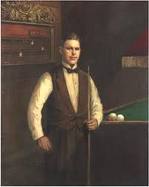Rote learning vs. critical thinking
Rote methods are routinely used when quick memorization is required, such as learning one's lines in a play or memorizing a telephone number. Rote learning is widely used in the mastery of foundational knowledge. Examples of school topics where rote learning is frequently used include phonics in reading, the periodic table in chemistry, multiplication tables in mathematics, anatomy in medicine, cases or statutes in law, basic formulae in any science, etc. By definition, rote learning eschews comprehension, so by itself it is an ineffective tool in mastering any complex subject at an advanced level. For instance, one illustration of Rote learning can be observed in preparing quickly for exams, a technique which may be colloquially referred to as "cramming".
Rote learning is sometimes disparaged with the derogative terms parrot fashion, regurgitation, cramming, or mugging because one who engages in rote learning may give the wrong impression of having understood what they have written or said. It is strongly discouraged by many new curriculum standards. For example, science and mathematics standards in the United States specifically emphasize the importance of deep understanding over the mere recall of facts, which is seen to be less important, although advocates of traditional education have criticized the new American standards as slighting learning basic facts and elementary arithmetic, and replacing content with process-based skills.
"When calculators can do multidigit long division in a microsecond, graph complicated functions at the push of a button, and instantaneously calculate derivatives and integrals, serious questions arise about what is important in the mathematics curriculum and what it means to learn mathematics. More than ever, mathematics must include the mastery of concepts instead of mere memorization and the following of procedures. More than ever, school mathematics must include an understanding of how to use technology to arrive meaningfully at solutions to problems instead of endless attention to increasingly outdated computational tedium."
-National Council of Teachers of Mathematics, Commonsense Facts to Clear the Air[1]
In math and science, rote methods are often used, for example to memorize formulas. There is greater understanding if students commit a formula to memory through exercises that use the formula rather than through rote repetition of the formula. Newer standards often recommend that students derive formulas themselves to achieve the best understanding.[2] Nothing is faster than rote learning if a formula must be learned quickly for an imminent test and rote methods can be helpful for committing an understood fact to memory. However, students who learn with understanding are able to transfer their knowledge to tasks requiring problem-solving with greater success than those who learn only by rote.[3]
Eugène Ionesco commented upon rote learning in his play "The Lesson":[4]
http://en.wikipedia.org/wiki/Rote_learning
